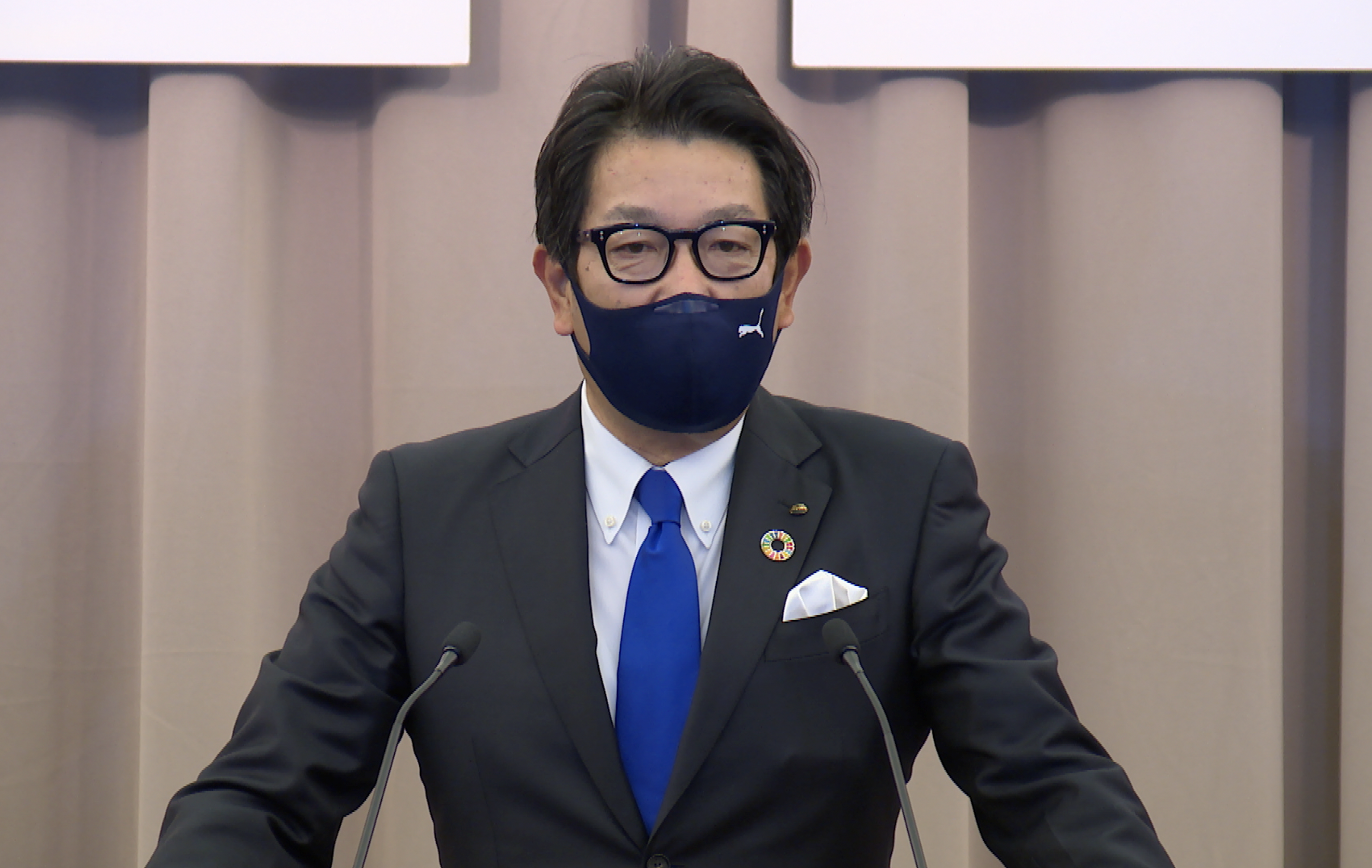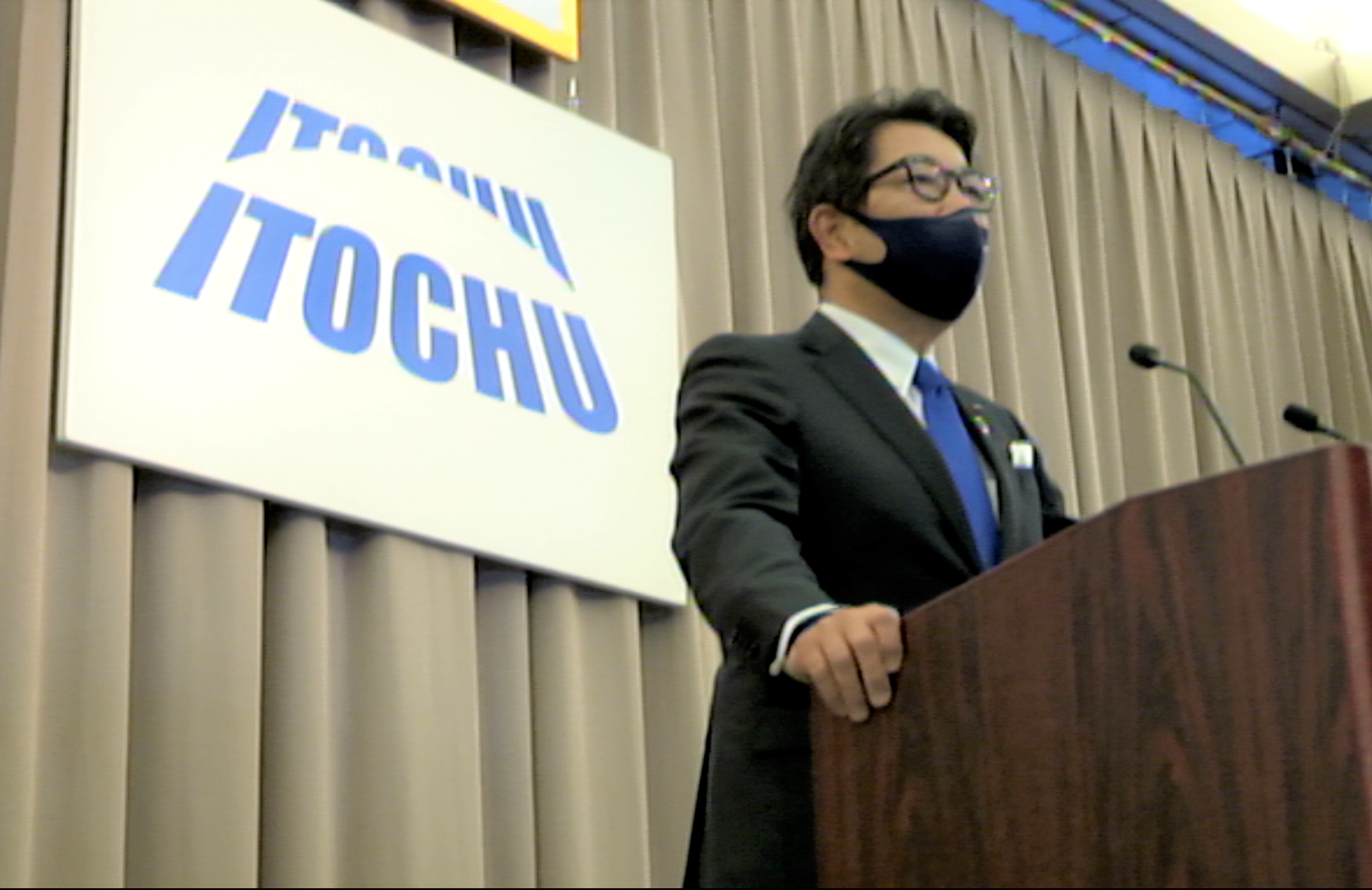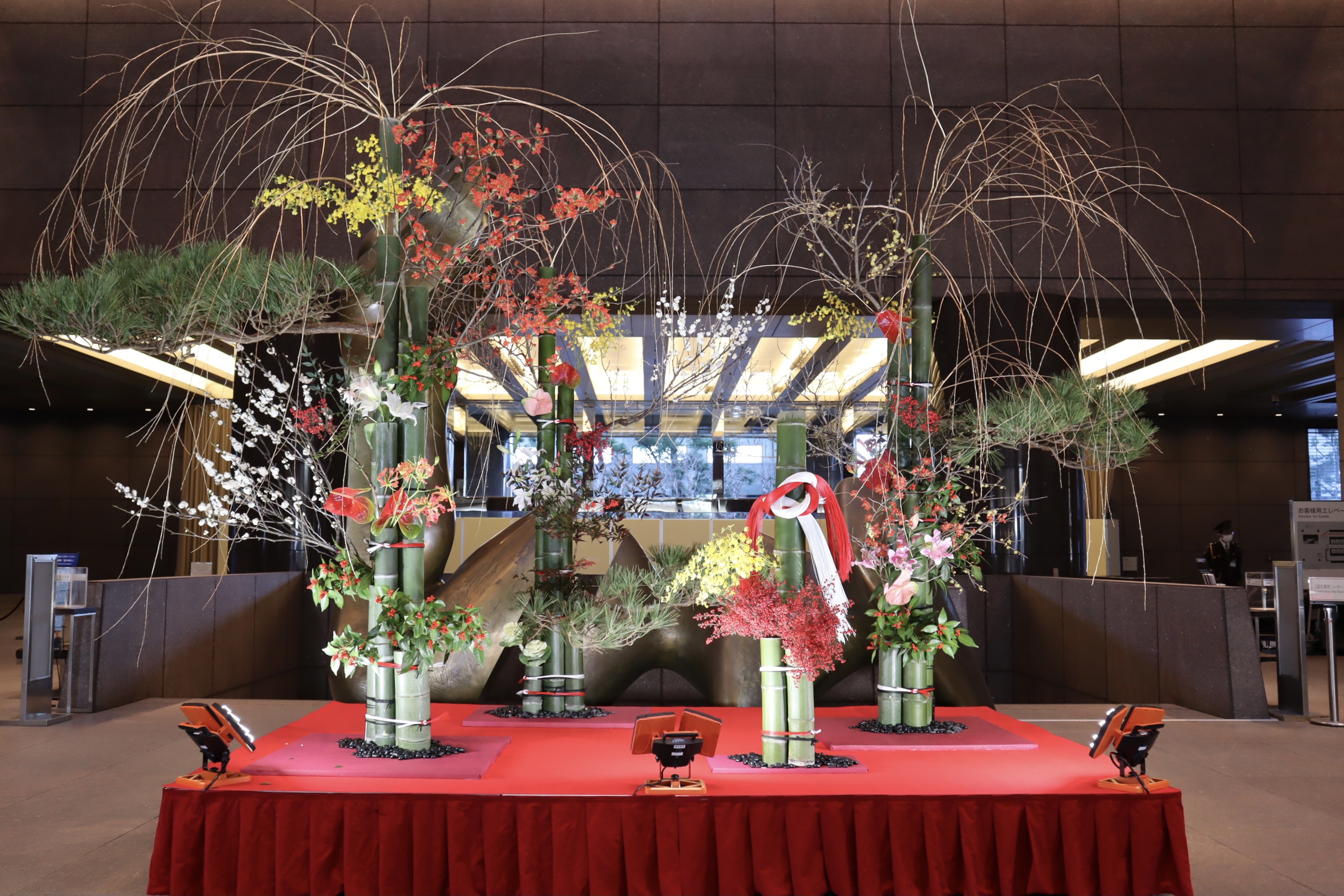New Year’s Remarks from the President & COO
January 4, 2022
On 4 January, Keita Ishii, President & COO of ITOCHU Corporation delivered his New Year’s message online to employees.
Happy new year
This year's winter vacation was a little shorter than usual, but I hope that you were able to spend it with loved ones and enjoy meaningful holidays, restoring your spirits so that you are ready to welcome the new year with renewed energy. As we start the new year, I would like to say a few words to all members of the ITOCHU Group in Japan and around the world.
It has been almost two years since the COVID-19 pandemic began, but there is still no end in sight. It seems that the battle is far from over. The last two years alone have seen a series of coronavirus mutations and its continued proliferation. Last year, the Delta variant was rampant, and now the Omicron variant is spreading at an alarming rate, highlighting the importance of the next vaccination to prevent infection. In June last year, we launched a workplace vaccination program ahead of other companies, establishing a system to enable the people who wish to be vaccinated to do so as quickly and reliably as possible. We are now preparing to administer booster shots.
Looking back on the economy, consumption activities in developed countries and China, where people received two doses of vaccine early, were returning to normal last year. However, production and logistics networks which had been shrinking due to restrictions on people's activities were not able to cope with the rapidly growing demand, resulting in a noticeable shortage of labor and raw materials and rapid inflation. Currently, commodity prices, whose values had been abnormal, have subsided slightly. However, it will take time for the entire supply chain to return to normal and it is unlikely that the supply chain itself will ever return to the situation that existed prior to the COVID-19 pandemic. In addition, the strained relationship between the U.S. and China has given rise to concerns about economic security in countries which are making moves that are different from their previous actions toward economic expansion, such as the resumption of domestic production in key industries and the rebuilding of flimsy supply chains that have been multinationalized. Further, we are facing an unprecedented, unpredictable economic environment, including government-led plans for huge investments in green infrastructure in Europe and the U.S. aimed at achieving a decarbonized society, which is a challenge faced by the whole world.
This year again, there will be many political events. In 2022, we will celebrate the 50th anniversary of ITOCHU being recognized as a friendly trading company by the Chinese government and it becoming the first sogo shosha to begin trading with China. China is one of the most important markets for ITOCHU, and it's National Party Congress, which is held every five years, is scheduled in November. The matter attracting attention regarding the National Party Congress is whether Xi Jinping will be re-elected for a third term as the leader of the Chinese Communist Party. The government policy should be clarified through the National Party Congress.
Multiple other political events are scheduled, including midterm elections in the U.S., presidential elections in France and South Korea, and the Upper House election in Japan. These political trends will greatly impact the market, so we need to continue watching the political situations of countries.
Today, on the occasion of the New Year, I will ask that you reaffirm the importance of the two Basic Policies of the Medium-term Management Plan and keep in mind the ideals with which you started out and the basic spirit.
The first basic policy is, "Realizing business transformation by shifting to a market-oriented perspective/ Profit opportunities are shifting downstream." The concept of a "market-oriented perspective" introduced by Mr. Okafuji, the Chairman & CEO, two years ago is now becoming an increasingly important keyword as a result of COVID-19. Two years have already passed since the start of the pandemic, and you have undoubtedly noticed the tremendous changes that have taken place in our lives and in our society during that time. When the pandemic first began, some said that society would return to normal once it was over. Now, I think few people would say that. The chain of change is unstoppable and it is hard to envision a return to the pre-COVID-19 society we knew.
At the beginning of the COVID-19 pandemic, procuring masks, rubber gloves, protective clothing, acrylic dividers and the like were essential emergency measures for continuing pre-COVID-19 lifestyles. Now, however, after having had their activities restricted for such a prolonged period, people are adopting new lifestyles that minimizes physical movement, including online meetings and teleworking. At the same time, the pandemic has significantly impacted people's activities, from consumption to marketing methods, such as the growing demand for microwavable food and online retail attributed to the increased amount of time people are spending at home. In addition, in the midst of this change, I think the greatest benefit from the COVID-19 pandemic has been the widespread use of digital technology. Being inconvenienced has led to a deeper understanding of the potential of digital technology, and it has accelerated the speed of its evolution. This is a major step forward. Digital technology is influencing society during the COVID-19 pandemic in a major way, changing homes, offices, healthcare, government systems, and other aspects of our lives. Many of these changes are arising from the demand side, and businesses are linked in complex ways through digitalization and mergers with other businesses, resulting in new products and services. In the future we should see a new society or business environment where the issues revealed by the pandemic will have been overcome, even if the COVID-19 pandemic has come to an end. Let me reiterate that, in all of our businesses, we need to keep a constant eye on the changing business environment, without judging our businesses by our previously best-selling products, previous consumer behaviors, or similar metrics as we did before based on the product-out or silo approach. In other words, it is important to have a merchant's excellent eye that can quickly understand and promptly and appropriately respond to changing needs caused by the twists and turns of social and market conditions by taking a market-oriented perspective that looks at changes in the market and consumption. I would like to remind you that our ability to stay one step ahead of change will make a big difference and will show in our business results in the future.
Secondly, I would like to talk about the sampo yoshi spirit which will lead to contributions to the SDGs, greater efforts to achieve them and contributions to all stakeholders. The other day, we listened to a talk given by Mr. Ken Shibusawa, a descendant of Eiichi Shibusawa, who is the father of Japanese capitalism. As I listened to his interpretation of the basic spirit of gappon-shugi advocated by Eiichi Shibusawa, among other topics, I remembered the Shibusawa Eiichi-no Kokoro-iki (the spirit of Eiichi Shibusawa), the first of the Asu-e-no wadai (topics for tomorrow) series of articles written by Chairman Okafuji. Gappon-shugi means the creation of value through the cooperation of various stakeholders, including not only shareholders but also management, employees, customers, business partners, and society. It is about desiring to achieve the welfare of society as a whole instead of only pursuing individual profit. This point is shared with our sampo yoshi corporate mission, the spirit of coexistence and co-prosperity advocated by the Ohmi merchants over 160 years ago. In addition, this common spirit is also related to stakeholder capitalism, an idea expressing respect for all stakeholders and a commitment to improving long-term corporate value that was made in 2019 by the Business Roundtable, an organization in the business world consisting of leading U.S. companies including J.P. Morgan. I think that these values include the ideas of the SDGs and ESG management, will be commonly held across the world, and will become an essential element for the improvement of corporate value. We have inherited the sampo yoshi corporate mission, from our predecessors. We have this spirit in our bones. All of you work with a high awareness of the SDGs, with many projects having already entered the implementation stage. This proves that the spirit has been passed on the right way. Please continue to work on the business in front of you with the sampo yoshi spirit, the business mindset that we aim for at ITOCHU, which creates a virtuous circle around the world and contributes to a sustainable society.
I would like to ask that you reaffirm the importance of the two Basic Policies outlined in the Medium-term Management Plan as you carry out your duties from today.
Finally, 2022 is the year of the mizunoe tora (mizunoe tiger) in the sexagenary cycle. The year of the mizunoe tora is said to be the year when buds burst forth after a harsh winter, laying the foundation for new growth. In an uncertain political and business environment, we will not be overconfident or conceited, but rather aim to achieve record profits and build an earnings platform of 600 billion yen during the period of the Medium-term Management Plan. We hope to make this a year that will go down in ITOCHU's history and lead to increased prosperity.
I would like to conclude my new year's message by wishing ITOCHU Group employees across the world and their families good health and happiness in the coming year.
|
|
|
|



